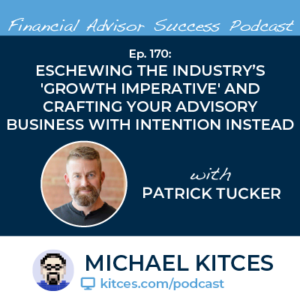Enjoy the current installment of "weekend reading for financial planners" – this week's edition kicks off with the news that, even as the country is still absorbing the outcomes of last week's $2 trillion CARES Act stimulus, President Trump has begun to advocate for another $2 trillion round of stimulus, this time focused on major infrastructure spending that both Democrats and Republicans have acknowledged is long overdue, but raising the question of whether the parties can come together to pass such bipartisan legislation on the heels of what has already been the largest economic stimulus legislation in history.
Also in the news this week is a flurry of focus on the new Paycheck Protection Program (PPP) under the CARES Act as it opens its application process today with the potential for small businesses (including advisory firms) to receive up to $10M in tax-free forgivable loans to support their employees (but on a first-come first-served basis and the risk that the $350B allocation will have more demand than dollars to allocate), and the news from the SEC that, despite economic turmoil and business disruptions, it is sticking with its June 30th effective date for Regulation Best Interest (Reg BI).
From there, we have a number of articles about how advisors are managing the current investment environment, including a discussion of how rebalancing software has found its moment to shine amidst the pressure for rapid rebalancing trades where taking days, or even just hours, to queue up trades can result in a material difference in price, and how market turmoil is leading to an uptick of interest in third-party models and even entire TAMP platforms, as small-to-mid-sized advisory firms realize the time challenges of doing both a burst of reallocating portfolios and reassuring clients at the same time.
We also have a few articles on the current work-from-home environment, including tips about how to avoid "Zoom bombing" (where hackers can interrupt your Zoom meeting with offensive material!), tips on how to improve your webcam setup to be a little more visually flattering, and some additional suggestions on how to remain productive when (suddenly) transitioning to a new work-from-home environment.
We wrap up with three interesting articles, all around the theme of leadership in these challenging times: the first explores the importance of developing team members to have their own autonomy to take risks and make decisions (especially in a bear market when there's too much to be done for the firm owner to make all the decisions); the second explores how fear in the midst of business risks can unwittingly cause advisory firm owners to clamp down at the exact moment it's crucial to empower employees more; and the last provides some helpful tips about how to be an effective leader in times of crisis... including recognizing that even if your advisory firm is not in trouble, employees don't necessarily know that, and still need enhanced communication from the leadership, if only to give them confidence that the firm really will be OK!
Enjoy the 'light' reading!

 Welcome back to the 170th episode of Financial Advisor Success Podcast!
Welcome back to the 170th episode of Financial Advisor Success Podcast!

